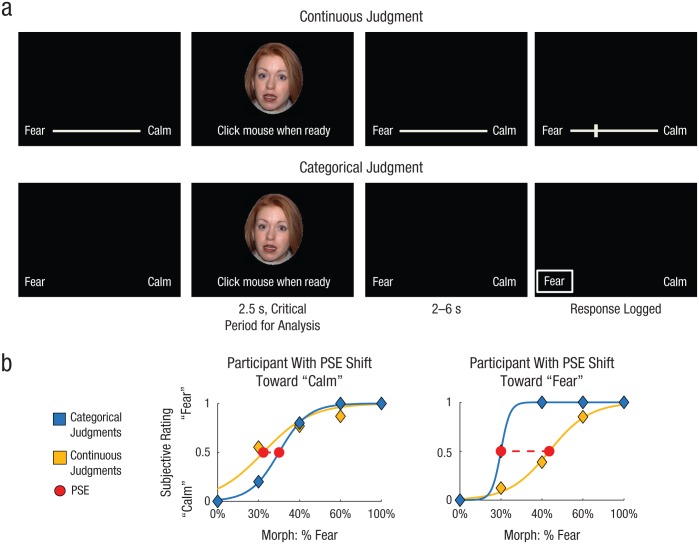Fig. 2.
Study 1: task design and examples of categorization-related shifts in the perception of emotion in other individuals. Each participant judged facial expressions morphed along a continuum from calm to fearful using a continuous scale in some blocks and a categorical scale in others (a). Each face was presented for 2.5 s, during which time participants were asked to indicate when they had made a decision concerning the emotion displayed. Next, following a 2- to 6-s interval, participants recorded their judgment. For each condition, the average subjective response (“calm” = 0, “fear” = 1) for each morph level was then calculated, and the point of subjective equivalence (PSE) was identified. The difference in the PSE between the conditions indexed the participant’s categorization-related shift in the PSE. Note that because of copyright concerns, the face image shown here is not one that was used in the experiment. In (b), the plot on the left shows results for a participant with a categorization-related shift (dashed red line) toward “calm,” and the plot on the right shows results for a participant with a categorization-related shift toward “fear.”

